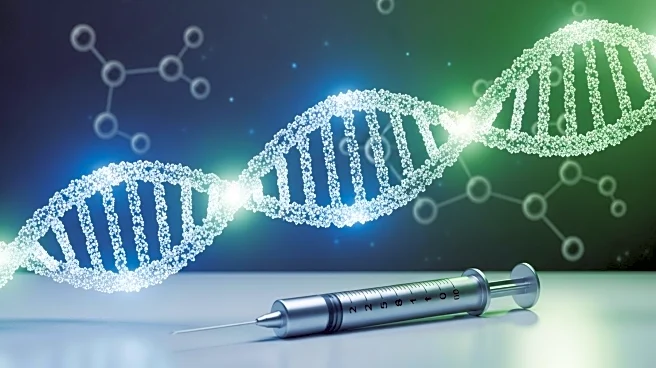What's Happening?
Bristol Myers Squibb and BioNTech have reported positive results from a Phase II study of their bispecific antibody BNT327, also known as pumitamig, for small cell lung cancer (SCLC). The study showed high response and disease control rates, with a confirmed overall response rate of 76.3% and a 100% disease control rate. The therapy was administered alongside standard chemotherapy. The results were presented at the 2025 World Conference on Lung Cancer. Pumitamig targets both PD-L1 and VEGF, addressing key cancer pathways and offering a new treatment option for SCLC.
Why It's Important?
The positive results from the study could position pumitamig as a leading treatment option for SCLC, potentially improving patient outcomes and expanding treatment options. The therapy's dual-targeting approach addresses fundamental cancer pathways, offering a novel mechanism of action. This could enhance BMS and BioNTech's competitive position in the oncology market, providing a new revenue stream and strengthening their presence in the lung cancer treatment landscape.
What's Next?
BMS and BioNTech plan to continue the development of pumitamig, with a global Phase III study underway. The study aims to evaluate the therapy as a first-line treatment for extensive-stage SCLC. Successful results could lead to regulatory approval and commercialization, providing a new standard of care for SCLC patients.









